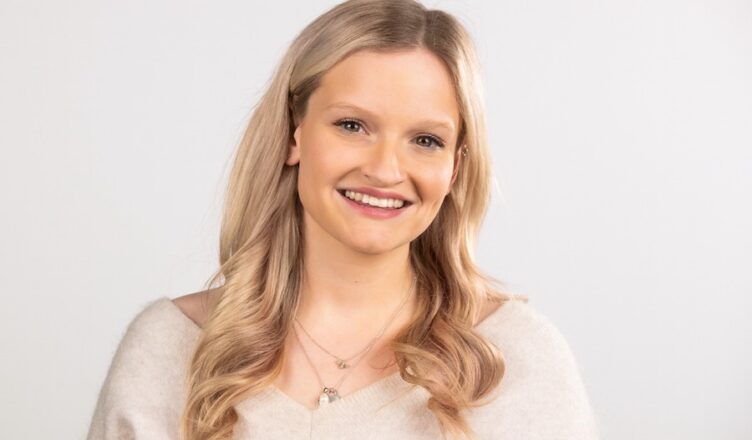Katie Ham couldn’t leave police work behind when she switched careers from detective to journalist. Now she’s carving out a career as Crime & Justice reporter for The Post.
We might have to ditch this interview at any moment. That’s how it is when you work in news: there’s no predicting when something big might happen.
It can be stressful, but reporter Katie Ham finds it “hugely” rewarding.
“It’s hard work, but hard yards are worth it,” she says, aware that the intensity of a newsroom during a major event isn’t to everyone’s taste.
“I think you can’t say it to anyone who’s not a journalist, but you’re never having as much fun as when you break a story. Finding the order in that chaos, finding a cohesive narrative of what’s actually happened. It’s quite fun.”
She took to the industry like a natural. A fortnight-long internship at Stuff’s Auckland newsroom while studying for a post-grad journalism diploma saw her break a story about carcinogens in blood pressure medicines. That piece and follow-ups made the homepage and led the site.
Ham was offered a job on the spot. Her thorough approach proved that, sometimes, the real story is in the fine print.
“Others ran the story about people having to change their blood pressure tablets, but they didn’t read right down to the end [of the media release] where it mentioned carcinogens,” she says. “It was all there.”
That was in mid 2022. A few months later in November, she helped cover the murder of Janak Patel, a worker killed at a dairy in Sandringham. As she went door to door talking to residents outside the police cordon, Ham discovered crucial evidence.
It wasn’t the first case she’d been involved with – Ham trained as a police detective in the UK.
“I very quickly realised [the police] wasn’t for me,” she says. “But there were parts of the job that I really liked. You meet a whole host of people from all walks of life. You ask them questions, you go into their homes, you’re invited into their businesses. So I wanted something that captured that – but less frontline, less confronting, less blood.”
Choose the light side
She saw the journalism course at Massey University, and liked its international focus. It was pre-vaccine Covid times – scary days in the UK, but few community cases here. She had a New Zealand passport, and could see “how you guys were living the life of Riley”.
“I thought, why not?”
She had expected her new career would take her to the lighter side of humanity, but it wasn’t to be.
“During my postgrad, you had the Parliament occupation. You had the Russian invasion of Ukraine, and those topics were darker than I thought I would go near. Then suddenly we had some quite notable crimes up in Auckland: the children in the suitcases, things like that. And I just couldn’t stay away – a moth to the flame.”
Crime is her niche. Ham scooped a coveted Voyager Award just months into the job, when she was named Student Journalist of the Year in May 2023.
Still under the Stuff umbrella, Ham is now based in Wellington as Crime & Justice Reporter for The Post newspaper and website, and can dig deeper into stories.
“The move here is enabling me to do more longer-form pieces, because we sit behind a paywall. There’s a big focus on providing a version of a story that people can’t get for free elsewhere. So you need to offer exclusive angles, exclusive interviews.”
She’s honing her craft. “That’s the next immediate step: working on those longer-form pieces and building up different ways of telling stories.”
Investigating cold cases is another area she’d like to explore further. “I’ve always been really interested in working with families and time has an interesting way of letting truths come to the surface and memories and loyalties change.”
Ham is providing value for paying readers, but in these days of generative AI blurting out ‘news’ stories for free, where is the value in journalism?
“I think – and I hope – there’s always going to be a value in telling real human stories: being on the ground, being able to go and sit with a murder victim’s family and have them tell you about their loved one. Or getting out on the street and figuring out what’s happening.
“AI can regurgitate content, but if something doesn’t already exist, it doesn’t know it. So there’ll always be a role for someone to be going out and finding that.
“The value lies in the human stories – the story behind the headline.”
This was first published in the December-Janaury 2024/2025 NZ Marketing Magazine issue. Subscribe here.






